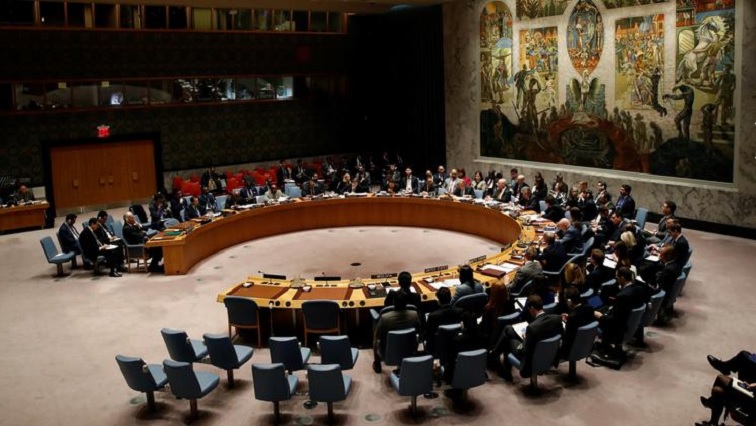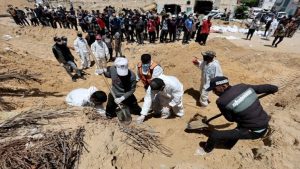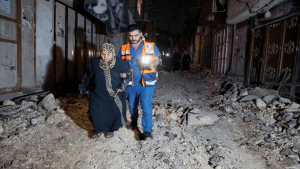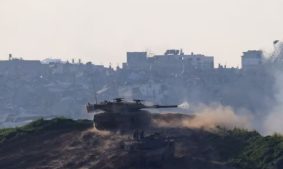The United Nations Security Council (UNSC) has been called on to use its leverage to give new breathing space to new thinking that is peace-oriented and rights-respecting and that moves parties past the current impasse in the Israeli-Palestinian conflict. The Council was holding its quarterly open-briefing on the situation in the Middle East, including the Palestinian question.
The UN’s Special Coordinator for the Middle East Peace Process called for a broader package of parallel steps by the government of Israel, the Palestinian Authority, and the International Community that addresses key political, security, and economic challenges that are preventing progress towards a negotiated resolution to the decades-long conflict.
The message to the Council is clear – the international community must build consensus for a broader framework for engagement or face an increasingly desperate reality shaped by extremist voices and unilateral actions.
“The situation in the Occupied Palestinian Territory (OPT) continues to deteriorate and we have seen no progress towards realizing a two-State solution. This political stagnation is fueling tensions, instability, and a deepening sense of hopelessness. The security situation in Gaza remains fragile and the security dynamics in the occupied West Bank, including East Jerusalem, are deteriorating, including growing tensions in and around the Holy Sites. Settlement activity, evictions, demolitions and seizures of Palestinian property, ISF military operations, particularly in Area A, and movement and access restrictions, including the severe closures on Gaza, further feed the cycle of violence,“ says Special Coordinator for the Middle East Peace Process Tor Wennesland.
The Council also heard from a US-Middle East Project – an organisation focused on advancing a mutually dignified and acceptable resolution to the conflict – that put forward three core concepts: First, the need for the Palestinian Liberation Organisation to become fully representative and inclusive of all Palestinians while not ignoring groups with a limited mandate repressing their own people.
Second, the need to address the accountability deficit when it comes to Israel’s actions, and thirdly – pointing to a symmetry deficit and the need to acknowledge the overarching and defining relationships of power in this conflict. The group’s President Daniel Levy warned that while Israel’s rights cannot be sacrificed they should also not come at the expense of Palestinian rights.
“Is there really nothing more to say about how to address the legitimate concerns and aspirations of both people? The rights of both Jews and Palestinians to self-determination without placing one right on top of the other or pitting one against the other? For security not to be something that either Israelis or Palestinians can have, but a necessity for both.”
Conflict continues
Council heard that Israeli civilians continue to be subjected to attacks by Palestinians and vice versa – while Israeli settlements continue to be a source of deep division.
“Occupied Palestine, including Jerusalem, is the target of a comprehensive and pervasive policy of colonization and invasion. We can talk about settlements forever. You have the numbers, but it is nothing but a collective form of expansion, colonization, and eventually of displacement and replacement in which Israel is appropriating everything Palestinian,” says veteran Palestinian Political and Civil Society Leader Hanan Ashrawi.
Israel’s Ambassador Gilad Erdan criticised the Council for allowing itself to be used as a vehicle against his country.
“When you allow this body to be turned again and again into a platform for the most outrageous anti-Israel libels, you are not only stopping the train of peace from moving forward, you are knocking it off the tracks. As I said, these debates reflect an alternate and false reality, detached from the reality on the ground and alternate reality in which hundreds of Palestinian terror attacks are not this council’s focus while every Israeli court ruling regarding illegal Palestinian construction becomes the most critical crises in the Middle East.”
The UN Secretariat confirmed that it was actively working to advance efforts toward greater engagement including through the Middle East Quartet.
A discussion on Israel-Palestine conflict:






